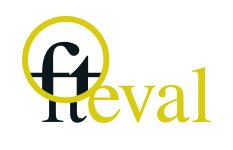Table of Contents
-
Provost, Lottie, Xenou, ZeniaPages: e1, 1-16
-
Research assessment as a tool for strategic management. Promoting interdisciplinarity through enhancement-led evaluation at the University of HelsinkiKivilaakso, Aura, Kolhinen, JohannaPages: e2, 1-17
-
The role of change agent characteristics in research assessment: Experiences from an evaluation of a research fellowship program in GermanyBerghäuser, HendrikPages: e3, 1-25
-
Indicators and Metrics in SSH Research: How Scholars Value Publication Practices in the Face of Epistemic CapitalismBayer, FlorianPages: e4, 1-25
-
Advancing Research Impact Evaluation in the Digital Era: Insights from EU-Funded Rare Disease ProjectsGrypari, Ioanna, Di Virgilio, Sergio, Papageorgiou, Haris, Fergadis, Aris, Pappas, DimitrisPages: e5, 1-19
-
Evaluating transformative innovation policy instruments. The example of the Austrian programme for the promotion of female researchers “INNOVATORINNEN”Régent, Verena, Ecker, BrigittePages: e6, 1-28
-
Everyone is equal in the lottery drum. More opportunities for risky research, postdocs and female scientists?Simon, DagmarPages: e7, 1-19
-
Energy and Resource Efficiency in the Economy: The evaluation of Germany's large industrial funding programme using mixed methodsNeusel, Lisa, Hirzel, SimonPages: e8, 1-20
-
The Contribution of R&I programmes to Transition: Evidence on Transformative Outcomes in the areas of the Green Transition and the Energy TransitionDinges, Michael, Kerlen, Christiane, Knöbel, Surya, Toepel, KathleenPages: e9, 1-18
-
Benoit, Florence, Di Girolamo, Valentina, Diodato, Dario, Canton, Erik, Ravet, JulienPages: e10, 1-27
-
Schuh, Christina, Schwertfeger, Daniel, Fringes, SonjaPages: e11, 1-12
-
Toepel, KathleenPages: e12, 1-16
-
Exploring unintended consequences in STI evaluations and monitoring. Towards a framework for unintended consequences and its use in evaluation and monitoring exercisesSeus, Sarah, Wittmann, Florian, Weiblen, NelePages: e13, 1-18
-
Designing a Theory of Change in less than an hour. Enabling rapid, collaborative development with a context-independent card-setHajdu, Erika, Lima, Giovanna, De Jong, StefanPages: e14, 1-17
-
Towards an evaluation framework for international strategic partnerships between universities. A co-creative approachVan Drooge, Leonie, Vermeulen, NikiPages: e15, 1-14
-
Schuch, Klaus, Gogadze, Nino, Gryga, Vitalii, Havas, Attila, Jaksa, Renata Anna, Krasovska, Olha, Kursun, Arzu, Liarti, Sofia, Shtembari, Eriona, Stefanik, Miroslav, Tsipouri, Lena, Vutsova, AlbenaPages: e16, 1-15
-
Gryga, Vitalii, Krasovska, Olha, Ryzhkova, YuliiaPages: e17, 1-18
-
Inside the funding process: Using generative AI to assess reviewers’ criteria prioritisation in multi-stage application assessmentsKolarz, Peter, Machado, DiogoPages: e18, 1-25
DOI: 10.22163/fteval.2025.692
https://repository.fteval.at/id/eprint/760
All articles are licensed as CC-BY 4.0 international. Copyrights remain with the authors.
Probleme bei der Anzeige? Ausgabe hier herunterladen.


